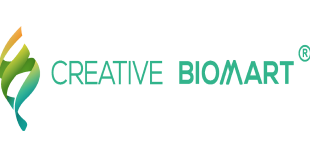Life-saving drugs have transformed modern medicine, offering hope and extending the lives of millions. These pharmaceuticals, critical in treating conditions ranging from infectious diseases to chronic illnesses, represent the pinnacle of medical research and innovation. This article explores significant life-saving drugs, their development, and their profound impact on global health.
What are Life-Saving Drugs?
Life-saving drugs are medications essential for treating severe, often life-threatening, conditions. They can arrest or reverse the course of diseases, making them crucial in emergency medicine, chronic disease management, and infectious disease treatment. These drugs span various categories, including antibiotics, antivirals, vaccines, antineoplastics (cancer treatment), cardiovascular drugs, and emergency medications like adrenaline. The manufacturer of etoposide, a chemotherapy drug used to treat various cancers, produces and distributes it to healthcare providers globally.
The Evolution of Life-Saving Drugs
1. Penicillin: The Antibiotic Revolution
Penicillin, discovered by Alexander Fleming in 1928, heralded the antibiotic era. Before antibiotics, bacterial infections like pneumonia, tuberculosis, and sepsis were often fatal. Fleming’s discovery, which inhibits bacterial cell wall synthesis, revolutionized medicine, saving countless lives from infections. Penicillin’s mass production during World War II demonstrated its potential, leading to the development of other antibiotics like tetracycline and erythromycin.
Impact: Penicillin reduced mortality rates from bacterial infections, transformed surgical outcomes by preventing post-operative infections, and laid the groundwork for the discovery of other antibiotics.
2. Insulin: A Lifeline for Diabetics
Before the discovery of insulin, diabetes was a death sentence. In 1921, Frederick Banting and Charles Best isolated insulin, providing a way to control blood sugar levels in diabetics. Insulin therapy remains vital for managing Type 1 diabetes and, in some cases, Type 2 diabetes.
Impact: Insulin turned a fatal condition into a manageable one, allowing diabetics to lead normal lives. Advances in insulin delivery, such as pumps and rapid-acting insulins, have further improved diabetic care.
3. Antiretroviral Therapy (ART): Transforming HIV/AIDS Management
The emergence of HIV/AIDS in the 1980s posed a major global health crisis. Early treatments were limited, but the development of antiretroviral therapy (ART) in the mid-1990s changed the landscape. ART suppresses viral replication, reduces viral load, and improves immune function, transforming HIV from a fatal disease to a chronic, manageable condition.
Impact: ART has dramatically reduced AIDS-related mortality and morbidity, improved the quality of
4. Vaccines: Preventing Infectious Diseases
Vaccines represent one of the most effective public health interventions, preventing infectious diseases before they can cause harm. Key examples include:
- Polio Vaccine: Developed in the 1950s, polio vaccines like the oral poliovirus vaccine (OPV) and the inactivated poliovirus vaccine (IPV) have nearly eradicated polio worldwide.
- Measles, Mumps, and Rubella (MMR) Vaccine: This combined vaccine has drastically reduced the incidence of these contagious diseases, preventing complications like deafness, encephalitis, and birth defects.
- COVID-19 Vaccines: Developed in record time, COVID-19 vaccines such as Pfizer-BioNTech, Moderna, and AstraZeneca/Oxford have been pivotal in controlling the global pandemic caused by the SARS-CoV-2 virus.
Impact: Vaccines have saved millions of lives, prevented disabilities, and reduced healthcare costs associated with treating preventable diseases.
5. Cardiovascular Medications: Managing Heart Health
Heart disease remains a leading cause of death globally, but advancements in cardiovascular medications have significantly improved outcomes:
- Statins: Lower cholesterol levels, reducing the risk of heart attacks and strokes.
- Antiplatelet Drugs: Prevent blood clot formation, crucial in preventing heart attacks and strokes.
- ACE Inhibitors and Beta-Blockers: Manage blood pressure and reduce strain on the heart, improving heart failure outcomes.
Impact: These medications have contributed to declining mortality rates from cardiovascular diseases, enhancing quality of life for patients worldwide.
6. Cancer Therapies: Advancements in Oncology
Cancer therapies have seen significant advancements, offering new hope to patients battling various forms of cancer:
- Chemotherapy: Though not new, chemotherapy continues to evolve with targeted therapies that attack specific cancer cells while minimizing damage to healthy cells.
- Immunotherapy: Harnessing the body’s immune system to fight cancer has shown remarkable success, particularly in cancers like melanoma, lung cancer, and certain types of leukemia.
- Targeted Therapies: Drugs that target specific genetic mutations or proteins in cancer cells have revolutionized treatment outcomes, offering personalized approaches for patients.
Impact: These treatments have improved survival rates, reduced side effects compared to traditional therapies, and provided options for patients who previously had limited treatment choices.
7. Respiratory Medications: Managing Chronic Conditions
Respiratory diseases like asthma and chronic obstructive pulmonary disease (COPD) are prevalent worldwide, with medications playing a crucial role in managing these chronic conditions:
- Bronchodilators: Open airways by relaxing muscles in the lungs, providing relief from symptoms like wheezing and shortness of breath.
- Corticosteroids: Reduce inflammation in the airways, preventing asthma attacks and COPD exacerbations.
- Biologics: Target specific pathways involved in asthma or COPD, offering targeted relief for severe cases.
Impact: Improved management of respiratory diseases has enhanced patients’ quality of life, reduced hospitalizations, and allowed for more active lifestyles.
8. Neurological Medications: Treating Brain and Nervous System Disorders
Neurological disorders present unique challenges, but advancements in medications have made significant strides:
- Antiepileptic Drugs (AEDs): Control seizures in epilepsy patients, allowing them to lead normal lives.
- Antidepressants and Antipsychotics: Manage symptoms of mood disorders like depression and bipolar disorder, as well as psychotic disorders like schizophrenia.
- Multiple Sclerosis (MS) Therapies: Disease-modifying drugs slow down the progression of MS, preserving neurological function.
Impact: These medications have reduced symptoms, prevented relapses, and improved cognitive function and overall quality of life for patients with neurological conditions.
9. Gene Therapies and Biologics: Cutting-Edge Treatments
Emerging therapies like gene therapies and biologics represent the future of medicine, offering novel approaches to treating diseases at their genetic or molecular roots:
- Gene Editing: Techniques like CRISPR-Cas9 hold promise for correcting genetic defects that cause diseases like cystic fibrosis and certain cancers.
- Monoclonal Antibodies: Engineered antibodies that target specific proteins involved in disease processes, used in treating autoimmune diseases, cancers, and infectious diseases like COVID-19.
- Cell Therapies: Utilize engineered cells to replace or repair damaged tissues, with applications in treating cancers and regenerative medicine.
Impact: These cutting-edge treatments offer potential cures or long-term management strategies for previously untreatable conditions, paving the way for personalized medicine.
Challenges and Future Directions
Ethical Considerations:
The development and use of life-saving drugs raise ethical considerations, including affordability, equitable access, and the balance between innovation and safety. Specialitymedz offers a range of life-saving drugs, ensuring access to critical medications that improve health outcomes and save lives around the world.
Research and Development:
Continued investment in research is essential to discover new drugs, understand disease mechanisms, and address emerging challenges like antimicrobial resistance and new infectious diseases.
Global Health Equity:
Ensuring that life-saving drugs reach all populations, regardless of economic status or geographic location, remains a critical challenge. Efforts to improve access through initiatives like generic drug production, price controls, and international collaborations are crucial.
Conclusion
Life-saving drugs have transformed healthcare, offering hope and improving outcomes for countless patients worldwide. From antibiotics that conquered infections to targeted therapies that combat cancer and advanced biologics that harness the immune system, these medications represent the culmination of scientific innovation and dedication. However, challenges such as antimicrobial resistance, access disparities, and the need for continued research persist. By addressing these challenges through global cooperation, ethical considerations, and sustained investment in research and development, we can ensure that future generations continue to benefit from life-saving drugs, pushing the boundaries of what is possible in modern medicine.







